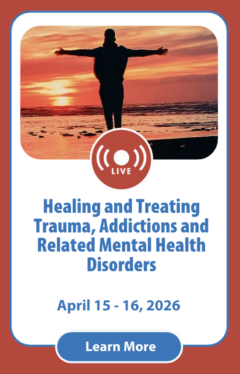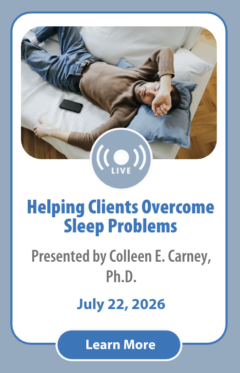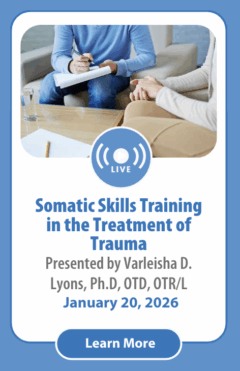Description
This workshop will be live streaming to online participants on March 6, 2026 from 8:30am – 4:00pm (Vancouver, BC)
Please adjust your start time according to your specific time zone.
Recorded footage and all course content (certificate, videos, quiz) will be available until April 10, 2026. Extensions cannot be granted under any circumstances.
Please allow 1 – 3 business days after the course airs for recorded footage to become available.
This engaging, evidence-based workshop explores how cutting-edge discoveries in neuroscience can be practically applied to improve client outcomes, motivation, and emotional resilience. Participants will gain insights into neuroplasticity, neurogenesis, and the influence of lifestyle factors such as diet, exercise, sleep, and social connection on brain health and psychological functioning.
With a focus on the SEEDS model—Social engagement, Exercise, Education, Diet, and Sleep—this training empowers professionals to integrate neuroscience-informed strategies into clinical or coaching practices. Topics include managing mood through understanding brain asymmetry, the impact of substances on cognitive function, the default mode network, and the benefits of mindful presence.
Practical Neuroscience: How to use new developments in neuroscience to improve client outcome and improve motivation:
- Neuroplasticity: How the brain is rewired
- Neurogenesis: How to grow new neurons
- Affect Asymmetry: The difference between the two hemispheres and changing mood
- The Default Mode Network: Our tendency to spend 30% of our waking ours
- someplace other than where we are
- Mindful Presence: How to be here now
- Mood cognitive dampers:
- Alcohol: downregulating neurotransmitter systems
- Marijuana: dampening neurogenesis
- Fat cells: the destructive role of chronic inflammation
The SEEDS Factors:
The Social Factor: How to explain and use the social brain systems
- Strong Social Support is identified with greater longevity, positive mood and
- cognitive skills. The social brain networks are critical for affect regulation, the
- orbitofrontal cortex and amygdala.
- The Exercise Factor: How to promote exercise as a treatment factor
- Describing How Exercise Alters Brains: It is the best antidepressant and anti-anxiety treatment. It is associated with the stimulation of brain-derived neurotrophic factor (BDNF), a growth factor that supports the rebirth of neurons, elevates mood and reduces anxiety.
- The Education Factor: How to work with the memory systems and promote client learning
- Explaining the Importance of Cognitive Reserve: How evidence that lifelong learning enhances brain span, reduces risk of dementia, and increases longevity. On-going learning helps those suffering from depression and/or anxiety look ahead to possibilities and builds interest in life beyond their psychological problems.
- The Diet Factor: Explaining the details of a balanced diet to promote brain health
- Describing How Brain Structure and Neurotransmitter Reserve: How these factors are dependent upon a balanced diet. Key amino acids are essential for synthesizing neurotransmitters needed for positive emotions, calm focused awareness and learning.
- The Sleep Factor: Explaining how to get a good night sleep for brain health
- Promoting good quality sleep: how consolidates new memories and may help erase remove unessential memories; how dreams may contribute to memory consolidation.






